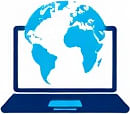Leadership Development Workshops for Remote Teams
 by Lilian Nienow
by Lilian Nienow
Explore how leadership development workshops can transform remote work dynamics. These sessions focus on building essential skills for virtual collaboration, improving team productivity, and maintaining work-life balance in distributed environments. Ideal for managers and freelancers adapting to remote setups.

Leadership development workshops play a key role in fostering effective remote teams. In remote work settings, leadership becomes essential for coordinating distributed groups. These workshops offer structured sessions that help participants build skills for managing virtual interactions.
Why Focus on Leadership in Remote Environments
Remote work presents unique challenges, such as maintaining team cohesion without face-to-face contact. Workshops address this by emphasizing communication strategies that enhance virtual collaboration. For instance, they teach leaders how to use digital tools to facilitate clear discussions and decision-making.
One major advantage is the improvement in team performance. Participants learn to identify and resolve common issues in remote setups, like miscommunication or isolation. Workshops often include practical exercises that simulate real-world scenarios, helping attendees apply new techniques immediately.
Core Elements of Effective Workshops
A typical workshop covers several foundational topics. First, it delves into team dynamics, showing how to build trust among remote members. Leaders practice active listening and feedback methods that work well online.
Another element involves productivity strategies. Sessions might explore ways to set goals and monitor progress in a virtual space. Remote work requires leaders to adapt traditional methods, such as turning daily check-ins into engaging video calls.
Workshops also highlight the importance of work-life balance. Leaders learn to recognize signs of burnout in their teams and implement supportive policies. For example, they might encourage flexible schedules to help employees manage personal commitments.
Benefits for Different Roles
For remote workers and freelancers, these workshops provide tools to advocate for themselves within a team. They gain insights on self-leadership, like prioritizing tasks and maintaining motivation independently.
Managers find value in learning how to foster a positive culture. Virtual collaboration tools, such as shared documents or project management software, are integrated into the curriculum to streamline operations.
Businesses transitioning to remote setups benefit from group workshops that align leadership styles across the organization. This ensures consistency in how teams operate, reducing friction during changes.
Practical Implementation Tips
To get started, organizations can select workshops that fit their needs, such as those offered by online platforms. Sessions should be interactive, with breakout rooms for small group activities.
Participants often engage in role-playing exercises that mimic remote challenges. This hands-on approach helps solidify learning and encourages immediate application.
Following a workshop, leaders should reflect on what they learned and set action plans. Regular follow-ups, like monthly virtual meetings, can reinforce the skills gained.
Measuring Success and Long-Term Impact
Success in these workshops can be measured through feedback surveys and performance metrics. Teams might track improvements in project completion rates or employee satisfaction scores.
Over time, the impact extends to overall business outcomes. Stronger leadership leads to better virtual collaboration, which in turn boosts productivity. For remote workers, this means more efficient workflows and reduced stress.
In summary, leadership development workshops are a vital resource for remote environments. They equip individuals with the skills needed to thrive in distributed teams, promoting both professional growth and personal well-being.
